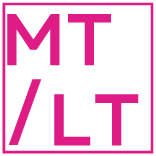4. Sustainability Report
4.6 Resource use and circular economy: formulas and packaging (E5)4.6 Resource use and circular economy: formulas and packaging (E5)
4.6.1 Background
L'Oréal has integrated the circular economy as a key pillar of its L'Oréal for the Future programme, with the aim of helping to preserve natural resources. L'Oréal is striving to improve its practices throughout the life cycle of its products, from design to end of life. This approach involves the use of renewable raw materials from sustainable sources or manufactured according to the principles of green chemistry or using biotechnology. For its packaging, L'Oréal is developing solutions to reduce the use of materials and encourage recycling.
4.6.1.1 Material circular economy-related impacts, risks and opportunities
| Description | Subtopics | Policy | Action plans | |
|---|---|---|---|---|
|

|

Description Resource-intensive products and packaging, combined with inadequate waste management practices, could be a threat to the environment. The depletion of renewable and non-renewable resources could lead to shortages and disrupt ecosystems. At the same time, the accumulation of waste and industrial pollution, compounded by inadequate recycling infrastructure, could lead to the contamination of soil, air and water, endangering both biodiversity and human health. |

Subtopics Resource inflows: formulas and packaging Resource outflows: formulas and packaging Waste from operations |

Policy Packaging policy R&I policy EHS policy for waste management Circular Innovation Fund |

Action plans Reducing packaging intensity Using recycled or biobased materials for packaging Promoting refillable, reusable, recyclable or compostable packaging Developing collection and recycling channels Promote the use of ingredients that are biobased, derived from abundant materials or from circular processes Reducing waste generation at source Accelerating development of the circular economy |
|
|
Description L'Oréal is pursuing circular practices to strengthen its position as a responsible player, promote stricter sustainability standards and drive collaborative innovation (with the recycling industry, start-ups, NGOs and research bodies). By seeking to improve the recyclability of its products and raise consumer awareness, L'Oréal may help change consumer behaviours. In line with this commitment, L'Oréal also supports the development of recycling solutions, generating jobs and promoting more sustainable solutions for the industry. |
|||
|

|

Description The increasing scarcity of certain resources and constantly changing environmental regulations, such as extended producer responsibility policies, may generate additional costs for L'Oréal, particularly in terms of sourcing, R&I and adapting production processes. L'Oréal must also respond to the growing demand for sustainable and environmentally friendly products. Failure to adapt to this new market reality could damage L'Oréal's brand image, result in a loss of consumer confidence and a drop in sales versus more environmentally advanced competitors. |
|||
|
|
Description Circularity is a rich source of opportunity for L'Oréal. It helps strengthen brand image by responding to growing consumer expectations for sustainable products and practices, attracting new customers and building loyalty among existing ones. Adopting circular business models, such as refill recharging systems, opens up new sources of income while reducing environmental impacts. Committing to sustainability facilitates strategic partnerships with key actors in the value chain, encouraging collaborative innovation and amplifying the positive impact of L'Oréal's own initiatives. |





